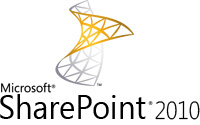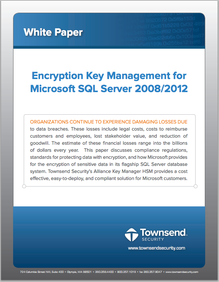 Microsoft has a great hit in the SharePoint suite of products. I am guessing that this might have taken them at bit by surprise, but SharePoint turns out to be very popular with organizations large and small. In the early days it was a free component that tagged along with Windows Server. Now there are many varieties of SharePoint that include flavors for Office, web portals, collaboration, Customer Relationship Management, and on and on. And a whole ecology of Microsoft partners and ISVs are building solutions on top of SharePoint, or incorporating support for SharePoint in their business applications.
Microsoft has a great hit in the SharePoint suite of products. I am guessing that this might have taken them at bit by surprise, but SharePoint turns out to be very popular with organizations large and small. In the early days it was a free component that tagged along with Windows Server. Now there are many varieties of SharePoint that include flavors for Office, web portals, collaboration, Customer Relationship Management, and on and on. And a whole ecology of Microsoft partners and ISVs are building solutions on top of SharePoint, or incorporating support for SharePoint in their business applications.
What a great success story!
 Securing SharePoint is now a big focus for those same Microsoft customers. Once you have a user friendly collaboration tool in place, it’s hard to know what those pesky users are going to put in there. Are they storing credit card numbers or social security numbers? Perhaps bank account numbers? Could our users be uploading spreadsheets with thousands or even millions of records with sensitive data?
Securing SharePoint is now a big focus for those same Microsoft customers. Once you have a user friendly collaboration tool in place, it’s hard to know what those pesky users are going to put in there. Are they storing credit card numbers or social security numbers? Perhaps bank account numbers? Could our users be uploading spreadsheets with thousands or even millions of records with sensitive data?
You bet they are!
And this is keeping security administrators and compliance auditors awake at night.
What you might not know is that SharePoint is built on top of Microsoft SQL Server as its data store. And in SharePoint 2010 you can now deploy SQL Server 2008 R2 with Extensible Key Management (EKM) and Transparent Data Encryption (TDE) to get data-at-rest protection for your SharePoint content. This is a great step forward in content protection, and many security administrators are now using this facility.
Of course, our Alliance Key Manager for SQL Server solution works naturally with SharePoint 2010 built on SQL Server EKM. You get full support for a compliant and best practice approach for separating encryption keys from sensitive data as required by PCI DSS and other regulations. If you are already running our key manager to protect SQL Server database applications, you have what you need to protect SharePoint.
Many SharePoint customers are rightfully concerned about the performance impacts of encryption. I think Microsoft has done a good job in this area, too. Microsoft will tell you that the likely performance impact with SQL Server Transparent Data Encryption (TDE) is from 2 to 4 percent. Our own performance tests have similar results, and in some cases are below 2 percent. This is really astounding performance when you consider that the entire table space is being protected by strong encryption. Of course, customer environments vary a great deal, and you should always model your environment to determine the likely impacts. But I think that the large majority of SharePoint 2010 installations will benefit from SQL Server TDE encryption.
For further information, download our white paper "Encryption Key Management for Microsoft SQL Server 2008" and learn about meeting encryption and key management challenges on your Microsoft SQL Server. Additionally, I’ve added some resource links below if you want to explore SharePoint 2010 and SQL Server encryption in more detail.
Patrick
Resources
Here is a blog by Margo Crandell of Microsoft on SharePoint and SQL Server. It’s a good entry point for a discussion of SharePoint with SQL Server.
This TechNet article talks about planning and deploying SharePoint with SQL Server, including how to migrate to newer versions of SQL server.
I’ve found this Microsoft Whitepaper very informative on security and SharePoint. You will find a good, basic discussion about SQL Server TDE in this document.

